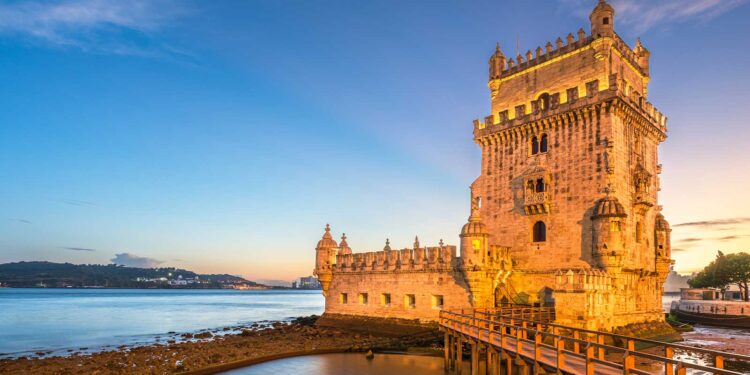Operating to LPPT – Part 2: Slots, Fuel, Security and Operating Tips

This business aviation blog post continues from our article last week, entitled “Operating to LPPT – Part 1: Airports, Parking & Permits.”
Operating restrictions and potential delays at Lisbon (LPPT)include peak hours of scheduled commercial activity and night time noise restrictions. For example, if you’re planning a landing after midnight be mindful that you’ll not be permitted to use thrust reversers. Also, airport slots are required for all travel to this airport and the earlier the requests are submitted, the better.
The following is an overview of what you need to know:
1.Airport slots
Airport slots are always required when operating to LPPT and flight plans must be filed using slot times as confirmed. Slots are requested in General Aviation Clearance Request (GCRC) format, confirmations are provided by air traffic control (ATC) with a slot deviation of +/- 15 minutes. For operations 0001-0600 local, noise level information (EPNDB) from either the aircraft manufacturer’s noise certificate or the flight manual must be provided with the slot request. Documentation needs to indicate takeoff, sideline and approach to landing noise levels. Note that no slot ID number will be provided to add to your flight plan. When filing flight plans ensure that you file for approved airport slot times.
2. Obtaining slots
It’s best to request LPPT airport slots at the time you make your initial handling request. You may request slots directly from the airport authority or request them via your ground handler.
3. Peak periods and operating curfews
Peak hours of scheduled commercial operations at LPPT are 0600-0800, 1200-1600 and 1700-2100 UTC. Airport operating hours are 24/7 for Stage 3 and above operations, but Stage 2 operations are only permitted 0601-2359 local and banned between 0001-0600 local.
4. Noise restrictions
LPPT has Stage 2 operating restrictions in place 0001-0600 local and limits the number of night Stage 3 movements to a maximum of 26 per day and 91 per week. Note that aircraft approved to land during this period are strictly prohibited from using thrust reversers, unless the operation is a designated humanitarian or air ambulance flight.
5. Restricted aircraft
Note that the EU has legislation preventing Philippine-registered aircraft, other than private non-revenue flights, from operating to Europe. Private non-revenue Philippine-registered aircraft may operate to Portugal without restriction as long as they’re not under the umbrella of a management company.
6. Fuel taxes
Imposto Productos Petroliferos (ISP) and value added tax (VAT) are charged on fuel uplifts for all non-commercial flights operating for private leisure or tourism, unless proof of exemption is provided prior to uplift. To prove an exemption the operator must either show an air operator certificate (AOC) or submit a statement that the flight is not for private leisure or tourism. This statement must include the company name, country of registration, tax ID number and also needs to be signed and dated. Note that current VAT rate for Portugal is 21%. However, ISP rates are subject to change each month and vary depending upon the airport.
7. Airport access for crew
When operating to LPPT it’s important for crew to arrive in uniform and with all required IDs and credentials in order to gain airside and aircraft access. Should you arrive out of uniform, even with the correct ID, your access will depend on authorization and discretion of an airport supervisor.
8. Fuel uplifts and tech stops
LPPT is a popular tech stop for GA operations. So long as passengers remain onboard there are no customs, immigration, and quarantine (CIQ) clearance requirements for international tech stops. If passengers deplane, they’ll need to clear CIQ in the main terminal and this process usually takes about 15 minutes. Note that LPPT has are no dedicated GA fuel trucks and uplift delays should be anticipated during peak hours of scheduled commercial activity.
9. Security considerations
When traveling to Portugal we recommend obtaining an advance security assessment and using prepaid transport (car with driver). Be aware of pickpocketing and purse snatching risks, particularly on public transport and in popular tourist areas. Avoid using ATMs in isolated or poorly lit areas and keep your car doors locked when stopping at intersections. Organized crime and drug activity is commonplace in bar/nightclub areas.
Conclusion
Airport slots are required for all operations into and out of this airport. It’s best to request these as soon as the schedule is known, and flight plans must be filed for the approved times. There are peak hours to consider and noise restrictions when traveling here. As there’s potential for fuel uplift delays, particularly during busier times of day, operators may chose to consider uplifting fuel upon arrival. Also, be aware of fuel taxes as that will affect the price. Crews arriving at the airport day of departure are advised to come in uniform, to avoid any airside access issues.
Questions?
If you have any questions about this article or would like assistance planning your next trip to Portugal, contact me at josephfleming@univ-wea.com.




